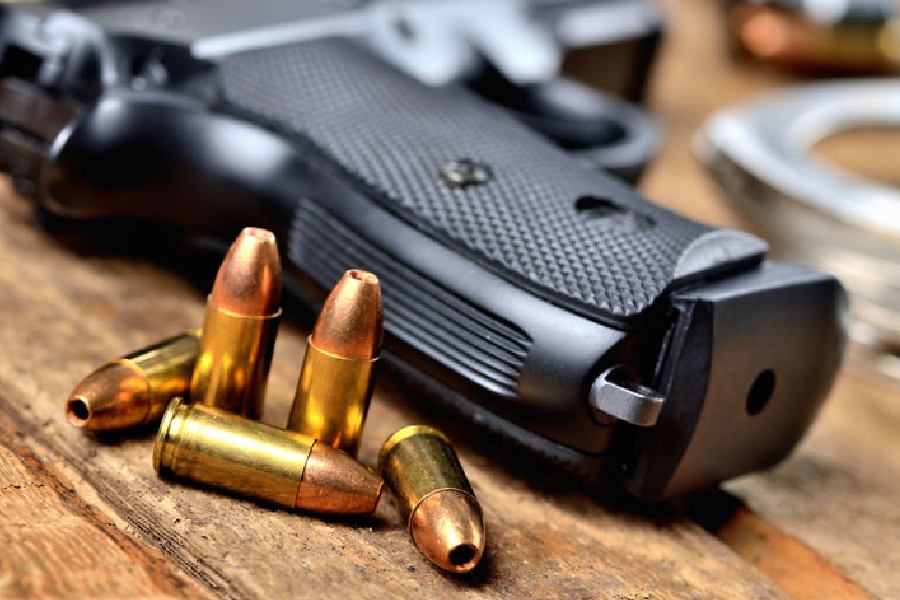Tennessee lawmakers passed a bill Tuesday to allow teachers and other school staff members to carry concealed handguns on school campuses. The measure, if it becomes law, would require those carrying guns to go through training and to have the approval of school officials, but parents and most other school employees would not be notified.
The bill is one of the most significant pieces of public safety legislation to advance in Tennessee after a shooting just over a year ago at a private Christian school in Nashville left three students and three staff members dead. The attack galvanized parents at the school and many others in Tennessee — including the state’s Republican governor — to demand action that could prevent similar violence.
But many of them believed that restricting access to guns was the solution, and critics of the legislation have argued that bringing more weapons onto school campuses would not improve safety and could even amplify the danger facing students.
Protesters opposed to the bill packed the House chamber and the corridors of the Capitol on Tuesday, carrying signs that said, “Kids Deserve More!” and “Have You Lost Your Ever-Loving Minds?”
The demonstrators echoed fears that have been raised since the legislation was proposed.
“I ask that you don’t put our children’s lives at risk by putting more and more guns in schools,” state Sen. London Lamar, a Democrat from Memphis, said during a debate this month as she cradled her infant son. “It is really hard,“ she added, “even as a new mom, to stand here and have to be composed on a piece of legislation that I know puts my son’s life at risk.”
The bill’s supporters have disputed that contention, arguing that the measure would protect students, not only because trained adults would have access to guns but also because their presence could act as a deterrent to a would-be assailant.
“We are not trying to shoot a student but protect a student from an active shooter whose sole purpose is to get in that school and kill people,” state Sen. Ken Yager, a Republican, said.
Supporters also contended that the legislation responded to the reality in more rural areas of the state, where vast counties and relatively small law enforcement agencies could hamper a swift response.
The bill significantly expands the current law, which mostly limits the carrying of firearms to law enforcement officers employed at a public school or to school resource officers.
The new legislation would broaden that permission to school staff members who have an enhanced handgun carry permit and who have the approval of their principal, district director and leaders of relevant local law enforcement agencies. The measure also imposes confidentiality rules around the disclosure of who is carrying a concealed handgun.
The staff member must also complete 40 hours of school policing training, undergo a background check, submit fingerprints to state and federal authorities, and submit a psychological certification from a licensed health provider. The handgun cannot be carried in auditoriums or stadiums during school events; during disciplinary or tenure meetings; or in a clinic.
Roughly half of U.S. states allow teachers or other school employees with concealed carry permits to have firearms on campus, according to Giffords, the research group led by former U.S. Rep. Gabrielle Giffords, who was among 19 people shot during a meeting she was having with constituents in 2011. (Six people were killed.)
However, those states have varying levels of rules regarding training and the permission needed from school officials.
Other states have made similar moves in response to a mass shooting, namely Florida, which in 2019 rolled back an existing ban and gave some teachers the ability to carry a firearm a year after 17 people were killed at a high school in Parkland.
The bill in Tennessee faced stiff opposition from Democrats and even some Republicans. Yet the House passed the legislation Tuesday by an overwhelming margin, underscoring the strength of the Republican supermajority in the state Legislature and the party’s resistance to curtailing access to guns.
The Senate passed the legislation earlier this month. The bill now heads to Gov. Bill Lee, but it is likely to become law, with or without the governor’s signature, as he has never exercised his veto power during more than five years in office.
Last year, Lee, whose family had a connection to a teacher killed in the shooting, pushed lawmakers to approve a law that would allow for the temporary confiscation of firearms from people found to be a danger to themselves or others. Fellow Republicans in the Legislature rebuffed his effort.
With the bill to allow teachers to carry guns, critics raised concerns about the choices an armed teacher would have to make between confronting an assailant or protecting a class of students, as well as about the risks that come from having guns on campuses.
“How will guns be stored? How do you ensure kids won’t get access to them? How do you ensure a gun isn’t used in a tense situation at school?” Cathy Barnett, a volunteer with the Tennessee Chapter of Moms Demand Action, said in a statement. “These are all critical questions about this type of legislation that never gets answered.”
Democrats also argued that Republicans, who had supported other legislation aimed at empowering parents, were contradicting themselves with a bill that would prevent notifying parents about a teacher who is armed.
State Sen. Paul Bailey, a Republican sponsor of the bill, countered that “nothing in this legislation requires that teacher to engage.” The confidentiality provisions, he added, helped preserve “the element of surprise.”
The New York Times News Service










